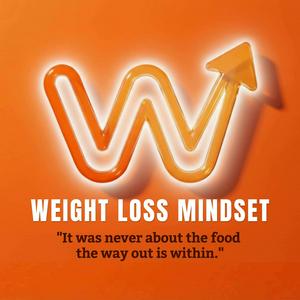You know that person who eats half the dessert, pushes the plate away, and keeps talking, no guilt, no negotiation, no mental war?
They don’t have more willpower than you. They’re running different mental software.
In this episode, I break down the 11 mental traits that make up that software. These aren’t gifts people are born with. They’re patterns of thinking, not patterns of eating, that can be learned, built, and installed. Every single one of them starts with identity, not discipline.
What You’ll Hear in This Episode
The 11 Traits:
* They see food as neutral, not reward, not punishment
* They eat from identity, not toward a goal
* They don’t negotiate with food
* They recover fast, without drama
* They are scientists, not judges
* They let cravings pass, they don’t fight them
* They have a quiet mind around food
* They trust their body’s signals
* Their motivation comes from values, not guilt
* They design their environment instead of testing their willpower
* They believe they are “someone who...”
Key ideas explored:
* Why the diet industry needs you to believe the problem is your willpower.
* How your Identity Thermostat creates a “set point” that no diet can override.
* Why self-efficacy, not perfect adherence, is the only consistent predictor of bouncing back from a lapse.
* How chronic dieting disconnects you from your body’s natural hunger and fullness signals.
* Why autonomous motivation predicts change at 23+ months while guilt-driven motivation predicts nothing.
* And why one sentence, “I am someone who...”, holds all 11 traits together.
Key Quotes from This Episode
“You’ve been trying to change the temperature by opening windows. Every diet is another window thrown open. And every time, the furnace kicks back on because the thermostat hasn’t moved.”
“The binge didn’t derail you. Your reaction to the binge did.”
“If guilt could make you thin, wouldn’t you be thin by now?”
“The goal of everything I teach isn’t discipline. It’s silence. The quiet mind. That’s what food freedom actually sounds like.”
Share This Episode
Know someone who’s still blaming themselves for every failed diet? Send them this episode. They need to hear that the problem was never their character, it was always the system.
Thanks for reading The Weight Loss Mindset! Subscribe for free to receive new posts and support my work.
This is a public episode. If you would like to discuss this with other subscribers or get access to bonus episodes, visit news.weightlossmindset.co


